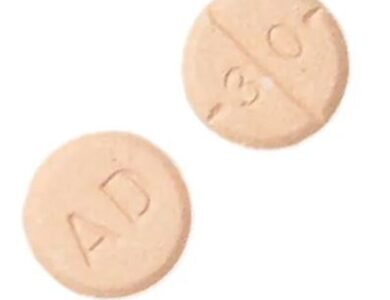What Is the Most Effective Treatment for Personality Disorder
Borderline Personality Disorder (BPD) is a complex mental health condition that affects the way individuals feel about themselves and how they relate to others. People with BPD often experience intense mood swings, unstable relationships, and challenges with self-image. Fortunately, BPD is treatable, and with the right approach, many people with the condition can lead fulfilling lives. But what is the most effective treatment for borderline personality disorder? Let’s dive into the options.
Understanding Borderline Personality Disorder
Before exploring the most effective treatments, it’s important to understand the core symptoms of BPD. People with this condition may exhibit some or all of the following:
- Emotional Instability: Intense emotions that can shift quickly, often without warning.
- Fear of Abandonment: Strong fears of being left or abandoned by loved ones.
- Unstable Relationships: Swinging between idealizing and devaluing others.
- Impulsive Behaviors: Reckless spending, unsafe sex, substance abuse, or binge eating.
- Self-Image Issues: A distorted self-concept and feelings of worthlessness.
- Self-Harm or Suicidal Behavior: Frequent self-injurious behaviors or suicide attempts.
Borderline Personality Disorder can make day-to-day life feel overwhelming, but various treatments can help manage and reduce symptoms.
The Most Effective Treatment for BPD: Dialectical Behavior Therapy (DBT)
One of the most recommended and proven therapies for BPD is Dialectical Behavior Therapy (DBT). DBT is a type of cognitive-behavioral therapy (CBT) designed to help individuals manage intense emotions and improve relationships. It was specifically developed by Dr. Marsha Linehan for BPD patients and has shown great success in treating the condition.
What Does DBT Involve?
DBT focuses on teaching skills in four main areas:
- Mindfulness: The practice of being present in the moment and recognizing your thoughts and feelings without judgment. Mindfulness helps patients reduce emotional reactivity.
- Distress Tolerance: Techniques for handling intense emotions without resorting to self-destructive behaviors, such as self-harm or substance abuse. These skills teach people how to tolerate emotional pain.
- Emotion Regulation: Learning how to identify, label, and manage intense emotions. This helps patients reduce the severity and frequency of emotional outbursts.
- Interpersonal Effectiveness: These are skills designed to improve relationships by helping individuals communicate effectively and assert their needs in a healthy manner without alienating others.
DBT is often conducted in both individual therapy sessions and group therapy, where patients practice skills with others. Research shows that DBT can reduce suicidal behavior, self-harm, and anger while improving overall emotional and social functioning.
Other Effective Treatments for Borderline Personality Disorder
While DBT is the gold standard for treating BPD, other therapeutic approaches can also be effective. Some patients may benefit from a combination of therapies depending on their individual symptoms and needs.
1. Cognitive Behavioral Therapy (CBT)
CBT helps individuals identify and change harmful thought patterns that contribute to their emotional distress. CBT for BPD focuses on helping individuals develop healthier ways of thinking about themselves and others. It’s effective in reducing symptoms such as depression, anxiety, and negative self-perception, which are common in people with BPD.
2. Mentalization-Based Therapy (MBT)
Mentalization-Based Therapy (MBT) helps individuals improve their ability to understand their own thoughts and feelings, as well as those of others. By learning how to “mentalize,” or recognize the emotions and perspectives of other people, patients with BPD can improve their interpersonal relationships and decrease conflict.
3. Transference-Focused Psychotherapy (TFP)
Transference-Focused Psychotherapy (TFP) is a psychoanalytic approach that focuses on the relationship between the patient and therapist. Through exploring emotions and behaviors that arise during therapy sessions, patients can better understand their relationship patterns and develop healthier ways to interact with others.
4. Schema-Focused Therapy
Schema-Focused Therapy helps patients identify and change deeply ingrained patterns (or schemas) that negatively affect their behavior and relationships. This therapy is useful for addressing the underlying causes of the emotional instability seen in BPD.
Medication in the Treatment of BPD
There is no medication specifically approved for the treatment of BPD, but medications may be used to treat specific symptoms. For instance, antidepressants can help manage mood swings and depression, while mood stabilizers and antipsychotic medications can help reduce impulsivity, aggression, and paranoia.
Medication is typically most effective when combined with therapy. A psychiatrist can determine whether medications may be beneficial based on an individual’s unique symptoms.
The Importance of a Support System
In addition to professional treatment, having a strong support system is essential for managing BPD. Friends and family can play a significant role in helping individuals cope with their symptoms by providing emotional support, understanding, and encouragement.
Many individuals with BPD also find support groups helpful, as they allow patients to connect with others facing similar challenges. This peer support can foster a sense of belonging and reduce feelings of isolation.
Can BPD Be Cured?
While there is no “cure” for Borderline Personality Disorder, it is highly treatable. With the right therapeutic interventions, individuals with BPD can experience significant improvement in their symptoms and lead fulfilling lives. The key is early intervention and consistent treatment. Patients must work closely with their mental health professionals and be committed to the therapeutic process to see long-term benefits.
Seeking Help for Borderline Personality Disorder
If you or someone you love is struggling with Borderline Personality Disorder, it’s important to seek help from a qualified mental health professional. Early diagnosis and intervention can lead to better outcomes and reduce the risk of complications such as self-harm, substance abuse, or suicide.
Therapists trained in DBT and other specialized treatments can help patients develop coping skills, improve relationships, and manage emotional distress. While BPD is a challenging condition, effective treatment is available and can make a profound difference in quality of life.
For anyone in need of addiction treatment, rehabilitation, or other mental health services, the Nasha Mukti Kendra in Chandigarh offers comprehensive support to help individuals lead healthier, more balanced lives.



